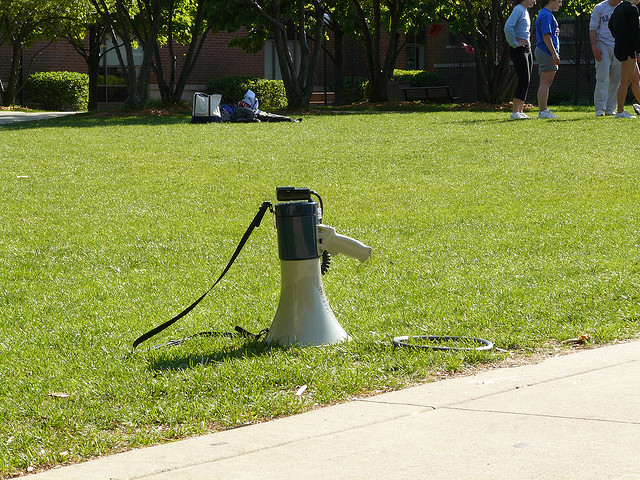James Shaw | Contributing Writer
In light of the UT+ money supplement accompanying the next edition of the paper I decided to get in touch with the chairpersons of the three avowed left wing student societies on campus (Labour Youth, Sinn Féin, and the Socialist Workers Student Society). With the university increasingly pandering towards corporate trends and placing a new emphasis on teaching students skills for the tech industry I sought to find out how these organisations are run, what their function is, what attracts people to join, and how political activism marries with student life. While many students worry about the ultra-competitive jobs market which has culminated in employers having the most clout, and which manifests in students taking unpaid internships in the hope of maybe securing a paid position, I was curious to know how these societies were fighting the lonely battle against the corporatization of our university.
I began by asking what motivated them to join a political society. There was a common theme of a broad alignment of values while SWSS chairperson, Rory Hearne, added that “we need a completely different kind of society”, seeing SWSS as the best way to fight the “barbarity of capitalism”. Sinn Féin’s chairperson, Thomas Hanlon, admitted he “wanted to join a political society…and wished to see a United Ireland”. From their answers, I took it that they joined for ideological reasons and not in pursuit of a career, in contrast to the image many people have of student societies as producing party hacks.
I took it that they joined for ideological reasons and not in pursuit of a career, in contrast to the image many people have of student societies as producing party hacks
As regards the average student’s perception of youth politics, Rory Hearne echoed this sentiment, saying that “political societies have a reputation for being a springboard for the careers of party hacks” and that “there’s a lot of truth in that.” He recognised, however, that “there are lots of people involved in political societies whose genuine motivation is changing society for the better”. In response to a question as to why Sinn Féin’s popularity amongst Trinity students is much lower than the national average Hanlon acknowledged that “there can easily be a perception that there is little presence of SF on campus.” Labour Youth’s chairperson, Killian O’Sullivan, bemoaned that “the average student doesn’t see the relevance of youth politics, or traditional left politics, in their own lives”, adding that “there’s a lot of disengagement”.
Given this stark frankness on the average student’s wariness of youth parties, I wondered what function they could serve, and particularly whether the left wing societies were facing a losing battle. On this note, however, each of the chairpersons agreed positively as to their parties’ efficacy of purpose. O’Sullivan stressed how youth parties “encourage young people to get engaged in politics”. He highlighted how over the last year, “Labour Youth’s ‘End Zero Hours Contracts’ campaign has helped push this important issue into the political spotlight” and that they would be actively engaged in support of the upcoming marriage equality referendum. Hanlon saw his society’s value as being “very influential in the formulation of ideas”, while Hearne viewed the purpose of his society as fighting back “against oppression and the capitalist system” and in their support of social causes such as “a woman’s right to choose and the struggle for Palestinian freedom”. Evidently, they all saw their respective organisations’ worthwhileness in getting students engaged in politics and aware of wider issues, believing they fill a worthy function of campaigning for causes pursuant to their ideologies.
Given the admitted disengagement of many students with politics, I was interested to know what the typical reaction is when people say that they’re involved in left wing youth politics. Hearne suggested that while “people are disgusted with the political system, they appreciate the radically different kind of politics” that his society is trying to convey. This contrasted with O’Sullivan’s experience who said “the typical reaction is a sort of mild bemusement…with people often asking why I think being involved in politics and with Labour is worth the effort.” However, he felt that political activism suits student life “since you have the opportunity to think about and explore broader issues and ideas through education”.
It is crucial that students engage in politics driven on by their ideologies and by their will to transform politics through the system
While there may be a deep-rooted mistrust of Irish politics in the wake of the financial crash and subsequent austerity which plunged the country into severe suffering, this is no reason to disregard politics as a whole. It’s possible that many people may have become disillusioned with politics after Barack Obama’s message of hope and real change captured the hearts of people worldwide, only to see his reforms largely swallowed up by the political system and for the USA to return to armed conflict in the Middle East, while Guantanamo Bay remains open.
However, be your political alignment on the left or on the right, it is crucial that students engage in politics driven on by their ideologies and by their will to transform politics through the system. As students, we will never again have so much time to explore political issues and to form our opinions and to challenge perceived wrongdoings. The only way politics can truly lose its way, is for people to lose hope in politics. Stay engaged.







